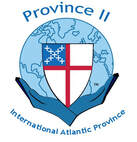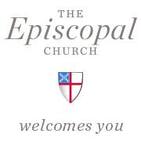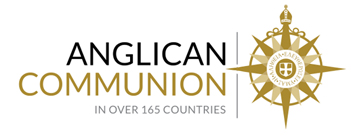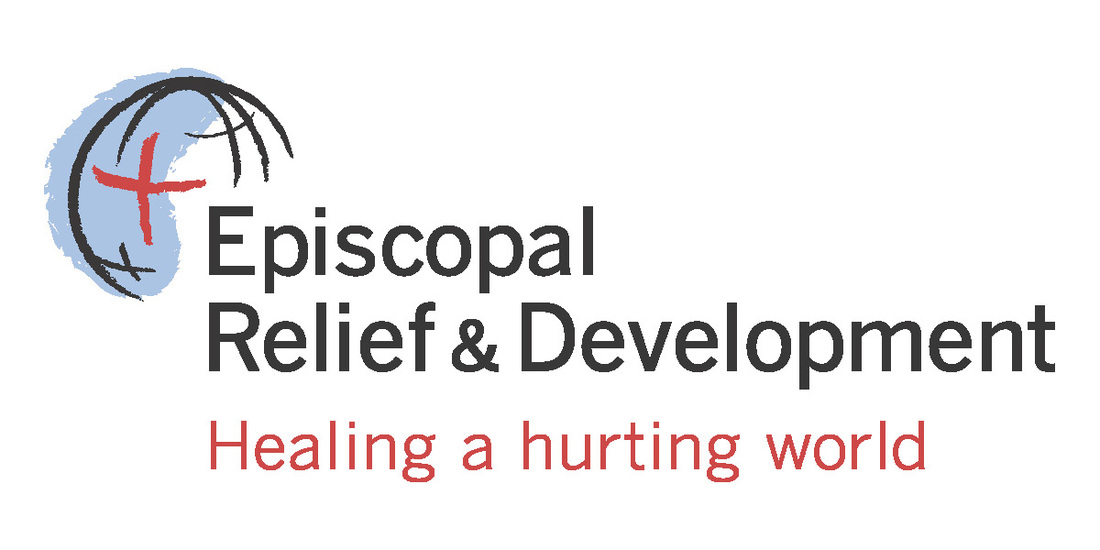Report of the Clerical Representative to Executive Council Winter Meeting February 13-15, 2020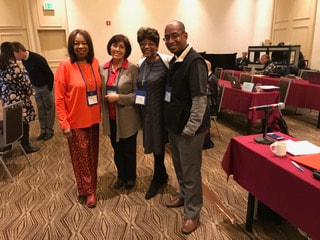 The Rev. Gay Clark Jennings, vice-chair of council and president of the House of Deputies, presided over the Executive Council meeting at the Hilton hotel in downtown Salt Lake City. Presiding Bishop Michael Curry was with us on the meeting’s second day after recovering from a bout of food poisoning. The meeting opened with a Eucharist celebrating Absalom Jones lead by The Rev. Charles Graves, The Rev. Deacon Lillian J. Davis-Wilson, a sermon by The Rev. Ronald Charles Byrd, and with music played by The Rt. Rev. Scott Hayashi, Bishop of Utah. What a beautiful and unifying service. This was followed by a heart-wrenching presentation by Mr. Forrest S. Cuch, a longtime leader of the Ute people, former director of Utah’s Division of Indian Affairs and the bishop’s warden at St. Elizabeth's Episcopal Church on the Uintah-Ouray Ute Reservation. He shared the way the “Doctrine of Discovery" dehumanized the Native American. The Doctrine of Discovery was a concept that asserted the superiority of white Europeans and their descendants over the indigenous peoples. It was used to justify taking of native lands and countless other injustices. The Episcopal Church formally rejected the doctrine and repented for its complicity at the 2009 General Convention. Cuch's presentation showed that injustices still live on. Mr. Cuch stated, "That as a nation, we are in big trouble, due to the extreme degree of cruelty and nastiness that is being displayed in our nation’s capital, I believe it is of a diabolical nature. And it needs to be taken seriously.” The Rev. Cornelia Eaton of Navajo land and the Rev. Angela Goodhouse-Mauai of North Dakota (both members of council) shared, through personal experiences and historical events, topics of racism from an indigenous perspective. They provided narratives of the ways the church can be an instrument of oppression and erasure of Native peoples or a source of strength and empowerment for them. Goodhouse-Mauai said, “In the Episcopal Church, we meet in the paradox of everything. How do we meet in the middle to continue this work together that we’re called to do?” Racial Reconciliation is one of the cornerstones of the church's mission. It should be at the forefront of the movement to undo the damage of the Doctrine of Discovery and root out racial discrimintion where it still grows, the presenters said. The Rev. Michael Carney, vicar at St. Elizabeth’s, showed some of the many ways his church is working to heal and renew the people of the Uintah-Ouray Ute Reservation. Through talking circles and art projects, children can share traumas openly, receive support and express difficult emotions. Native storytellers share the Ute creation stories, so they can reconnect with the cultural heritage that was taken away from them. The next morning Kristine Stache, interim president of Wartburg Theological Seminary, an Evangelical Lutheran Church in America affiliate, made a presentation and spoke about ways to interpret and respond to The Episcopal Church’s membership decline as depicted in the most recent parochial report data. Stache started off with a brutally honest look at those declining statistics. She said, "If the rate of decline experienced over the past decade continues, The Episcopal Church will have no Sunday attendance in 30 years and no baptized members in 47 years. As with other mainline Protestant Churches, it depicts a church that appears to be dying, perhaps.” But, she argued, other signs show a church that is not dying but transforming. Stache encouraged council to see this difficult transformation as a sign of God’s presence, not God’s absence, citing Isaiah 43:18 “Do not remember the former things, or consider the things of old. I am about to do a new thing. Now it springs forth; do you not perceive it?” Stache said, while “innovation” has become the buzzword of choice in discussions of how to deal with these changes, it often consists of creating new pathways to traditional models of ministry or coming up with solutions to perceived problems. That’s not what the word really means or what the church needs. She argued "Innovation" gives us permission to say, ‘We don’t have it figured out. But we trust that God has a future and it includes the church. We ask new questions and experiment, creating a culture of failure by which we learn something. The church should become something truly new, something we have yet to imagine. This kind of thinking looks nothing like what we’ve ever done before. We don’t have the current knowledge or solutions to address this work. In fact we can’t even define the problem, but that’s the point. Living in this space is about a mental shift to a focus on questions instead of answers.” Next, Michael Barlowe, as secretary of General Convention, formally certified that the Episcopal Church of Cuba had met the requirements for readmission to The Episcopal Church as a diocese. After a unanimous vote, it was official: The Episcopal Church of Cuba became the Episcopal Church in Cuba, joy and excitement burst forth to a round of joyful applause. Addressing the council Cuba Bishop Griselda Delgado Del Carpio spoke in Spanish with a great deal of emotion and said, “Each one of us has been living a very emotional time in our life in the Diocese of Cuba because the church lived for more than 50 years all by itself. I want to express my gratitude to each one of you … who has worked so arduously to achieve this moment. We will continue serving our people, our country – however, we will do it in your company.” I feel this is an exciting time for our province. I Chaired the Joint standing committee Beyond the Church this session and, after hearing reports from the Office of Government relations, we presented two resolutions to the body. The first was False and Misleading Information when it Comes to Our Elections, urging Episcopalians and political leaders to fight misinformation and enact election security measures in the United States and elsewhere. The second resolution was On Anti-microbial Resistance. This resolution urges the research and support needed for advocacy. We have come to the end of our ability to use antibiotics against these "super bugs" that are a threat to individuals and society. Other resolutions adopted by council included an assessment waiver for the Diocese of Alabama, the adoption of a Covenant for Care of Creation and a plan for its implementation. Another high point of the meeting was the selection of Louisville, Kentucky, as the site for the 2024 General Convention and congratulations and farewell to Georgia's Bishop elect Frank Logue. After completing the enormous work of this session, a blessing from Presiding Bishop, Michael Curry was given adjourning the meeting on a high note. Respectfully submitted by, The Rev. Lillian J. Davis-Wilson Comments are closed.
|
Archives
July 2024
Categories |

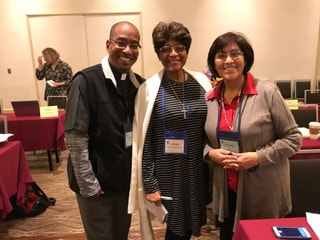
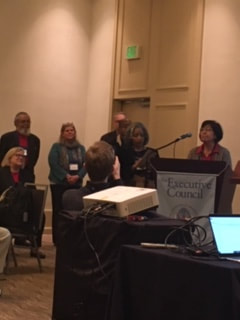
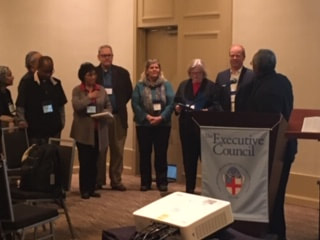
 RSS Feed
RSS Feed
